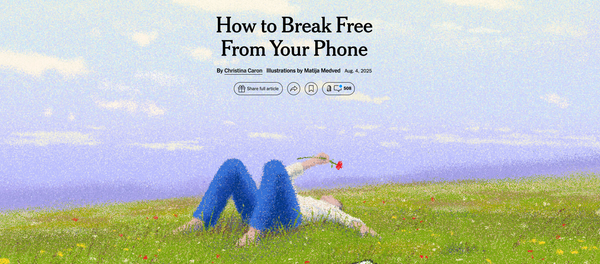A Broad View of Learning

Sometime during my freshman year of college, before I'd joined the Engineering Physics department, I got a helpful piece of advice from a visiting industry mentor at a meeting of our student chapter of the American Society of Mechanical Engineers:
Decide whether you're a breadth person or a depth person. We need both, but you'll make better decisions if you know what kinds of work you prefer.
The clouds parted. Angels sang. I had my main organizing lens on professional development for the next six years, and probably the seeds of my choice to leave engineering for seminary a couple courses before I was fully ABD (= all but dissertation) in nuclear engineering.
I am a breadth person.
My second time around a doctoral program, I found myself in a breadth person's paradise. I'd joined the Department of Math, Science, and Technology at Teachers College, Columbia University, the oldest and largest graduate school of education in the U.S. But it's not just a school of education, but rather of education, health, and psychology. And the actual program I'd joined was communications, media, and learning technologies design (CMLTD).
That's a lot of ands! I figured if I couldn't stay interested long enough to finish a depth-person's degree in a program shot through with so much breadth, then perhaps my goal of getting credentialed to perhaps someday be called a professor of something-or-other just wasn't mean to be.
A few months into the program, I discovered one more set of ands that I would be joyfully responsible for. Our program had an ideological commitment to the notion that learning itself is broad, and thus doctoral students were responsible for three perspectives on learning:
- Cognitive Perspectives – This is where most people's attention turns when it comes to learning, and improving learning. If you've ever heard someone say something like "learning is about changing our minds and changing our brains," they were probably pretty rooted in the cognitivist tradition. Learning researchers working from cognitive perspectives leverage psychology, linguistics, neuroscience, computer science, and more. (Cognitive science grew up alongside computer science, and you might be surprised to learn just how much each field influenced the other.)
- Social Perspectives – Social perspectives focus on how interaction between individuals, as well as between individuals and larger social structures, contribute to or interfere with the learning process. Here Lev Vygotsky is an important voice voice, given his emphasis on the interaction between teacher and learner. But social perspectives on learning also extend the analysis to many “situated” social contexts, communities, and sites. Finally, a social lens brings to bear on educational research a concern with social equity in education.
- Cultural Perspectives – Cultural perspectives on education take seriously those objects of analysis that are common among groups of people—common both in the sense that they are shared and that they are ordinary. My advisor was an educational anthropologist, so in a lot of ways cultural perspectives were the most significant in my formation as an education scholar. If you read my post on the funds of knowledge tradition, that's a great example of this perspective in action: a concern for "shared everyday stuff" in our lives and how that stuff shapes and scaffolds our approach the world and to learning.
This week I'm planning to spend a day introducing some important resources and insights from each of these perspectives. By Friday I want to introduce a perspective I've had trouble fitting into any of these categories and that I want to do a deeper exploration of next week. I think churchy type people will find it especially helpful. Stay tuned!



